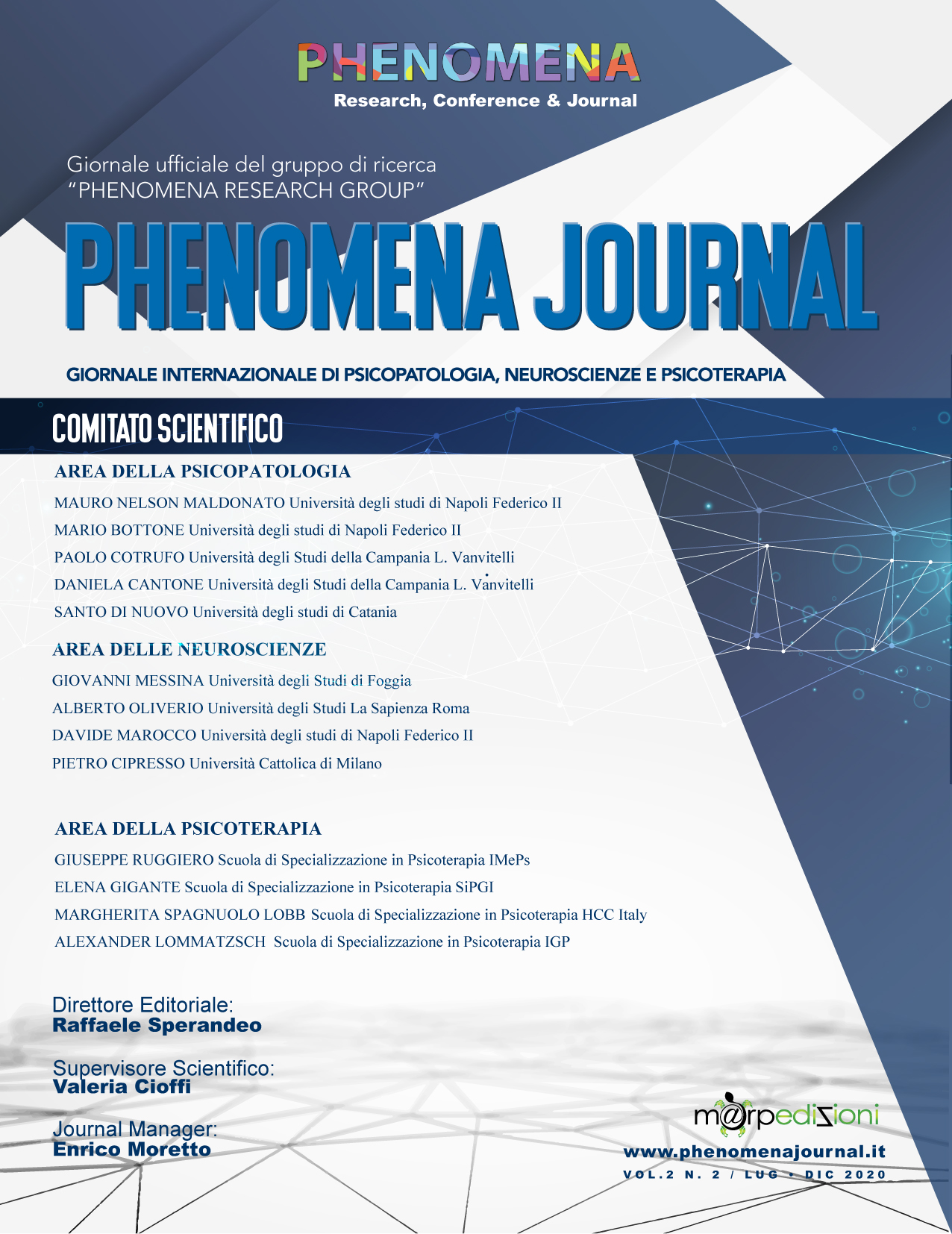Pubblicato 03.09.2020
Come citare
Abstract
The paper presents the results of qualitative field research about the phenomenon of NEETs - Not (engaged) in Education, Employment or Training - investigated with the constructivist Grounded Theory methodology. The research, which involved 82 young people aged between 18 and 24 years, began in November 2015 and ended with the analysis of data collected in December 2018. In line with the methodological indications of the constructivist Grounded Theory (GT) (Charmaz, 2000, 2006, 2014), field research was immediately accompanied by open coding, using all that was useful for saturation of the categories.
The constant critical reflection, conducted throughout the process of my research, has led to detect and define 3 core categories that are fundamental to the definition of a substantive theory. The permanent orientation emerges as a social need because it promotes and increases the psychological well-being of NEETs. The comparison between the “initial” questions of research and the 3 core categories, conceptually valid, allowed me to start the process of focusing and analyzing the possible correlations. Correlations capable of supporting a scientifically strong definition, for the proposal of a substantive theory, emerging from the three initial questions of the research.
1. How do you “selfassess” NEETs with respect to the world of work? Psychological area: to understand the characteristics of the NEET individual. How to contribute to its identity awareness about operating (occupying and acting) a role. To train him/her to reflect on his/her own interests, in accordance with his/her own authentic purposeful Self (Di Fabio, 2014).
The question aims to understand how:
a) to increase the capacity to make choices (Self confidence in decision making);
b) to make them feel/perceive that they are ready (Self efficacy and Self capability);
c) to raise the skills to manage problems (Self-empowerment and problem solving).
2. How do NEETs live their “condition”? Psychosociological area: to investigate the context and environment of NEETs’ life. The answers to this question must allow them to understand what they are, first and foremost:
a) the causes to which they attribute their current NEET situation (external/internal);
b) the roads they would like to take to move towards work (Self orientation);
c) their thoughts and attitudes towards current social policies (active/passive).
3. How do you represent the labour market? Sociopsychological area: relationship aspect; ability to stay in relationships. In the answers you want to understand:
a) what they thought when they were at school in the world of work (imagination about their own future);
b) how their thoughts on the world of work are today compared to those years (alignment to their own reality).
c) what knowledge, what information they possess of the working possibilities of their territory (awareness of employment opportunities).
Keywords: NEETs, Self-empowerment, purposeful Self, Self orientation, resiliency, decision making.
Abstract in italiano
Il documento presenta i risultati della ricerca sul campo qualitativa sul fenomeno dei NEET - Non (impegnati) nell'istruzione, nell'occupazione o nella formazione - indagati con la metodologia costruttivista della Grounded Theory. La ricerca, che ha coinvolto 82 giovani di età compresa tra 18 e 24 anni, è iniziata a novembre 2015 e si è conclusa con l'analisi dei dati raccolti a dicembre 2018. In linea con le indicazioni metodologiche della Grounded Theory (Charmaz, 2000, 2006, 2014), la ricerca sul campo è stata immediatamente accompagnata da una codifica aperta, utilizzando tutto ciò che è stato utile per la saturazione delle categorie.
La costante riflessione critica, condotta durante tutto il processo della mia ricerca, ha portato a rilevare e definire 3 categorie fondamentali che sono fondamentali per la definizione di una teoria sostanziale. L'orientamento permanente emerge come un'esigenza sociale perché promuove e aumenta il benessere psicologico dei NEET. Il confronto tra le domande "iniziali" della ricerca e le 3 categorie fondamentali, concettualmente valide, mi ha permesso di iniziare il processo di focalizzazione e analisi delle possibili correlazioni. Correlazioni in grado di supportare una definizione scientificamente forte, per la proposta di una teoria sostanziale, che emerge dalle tre domande iniziali della ricerca.
1. In che modo NEET “selfassess” rispetto al mondo del lavoro? Area psicologica: comprendere le caratteristiche dell'individuo NEET. Come contribuire alla consapevolezza dell'identità sull'operare (occupare e recitare) un ruolo. Formarlo per riflettere sui propri interessi, in accordo con il proprio Sé autentico e propositivo (Di Fabio, 2014).
La domanda mira a capire come:
a) aumentare la capacità di fare delle scelte (fiducia in se stessi nel processo decisionale);
b) farli sentire / percepire di essere pronti (autoefficacia e capacità di auto);
c) aumentare le competenze per gestire i problemi (auto-responsabilizzazione e risoluzione dei problemi).
2. In che modo i NEET vivono la loro "condizione"? Area psicosociologica: indagare il contesto e l'ambiente della vita dei NEET. Le risposte a questa domanda devono consentire loro di capire cosa sono, innanzitutto:
a) le cause alle quali attribuiscono la loro attuale situazione NEET (esterna / interna);
b) le strade che vorrebbero percorrere per spostarsi verso il lavoro (orientamento personale);
c) i loro pensieri e atteggiamenti nei confronti delle attuali politiche sociali (attivo / passivo).
3. Come rappresenti il mercato del lavoro? Area socio-psicologica: aspetto relazionale; capacità di rimanere in relazione. Nelle risposte che vuoi capire:
a) cosa hanno pensato quando erano a scuola nel mondo del lavoro (immaginazione per il proprio futuro);
b) come sono oggi i loro pensieri sul mondo del lavoro rispetto a quegli anni (allineamento alla propria realtà).
c) quali conoscenze, quali informazioni possiedono delle possibilità di lavoro del loro territorio (consapevolezza delle opportunità di lavoro).
Parole chiave: NEETs, orientamento, resilienza, Self efficacy, decision making, Self empowerment, Self orientation.

